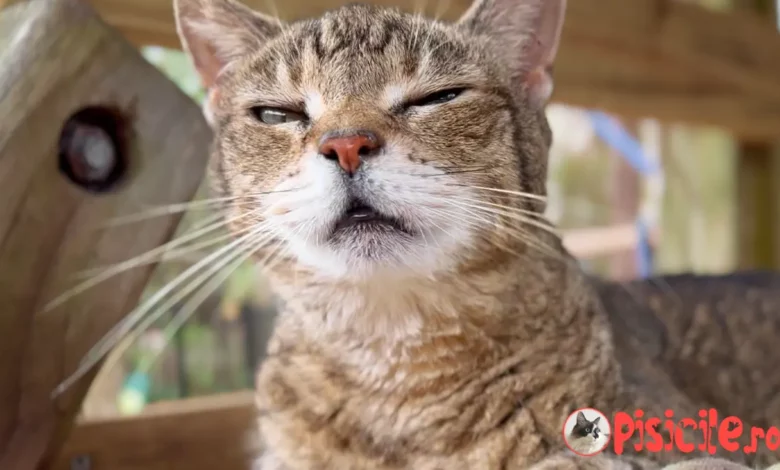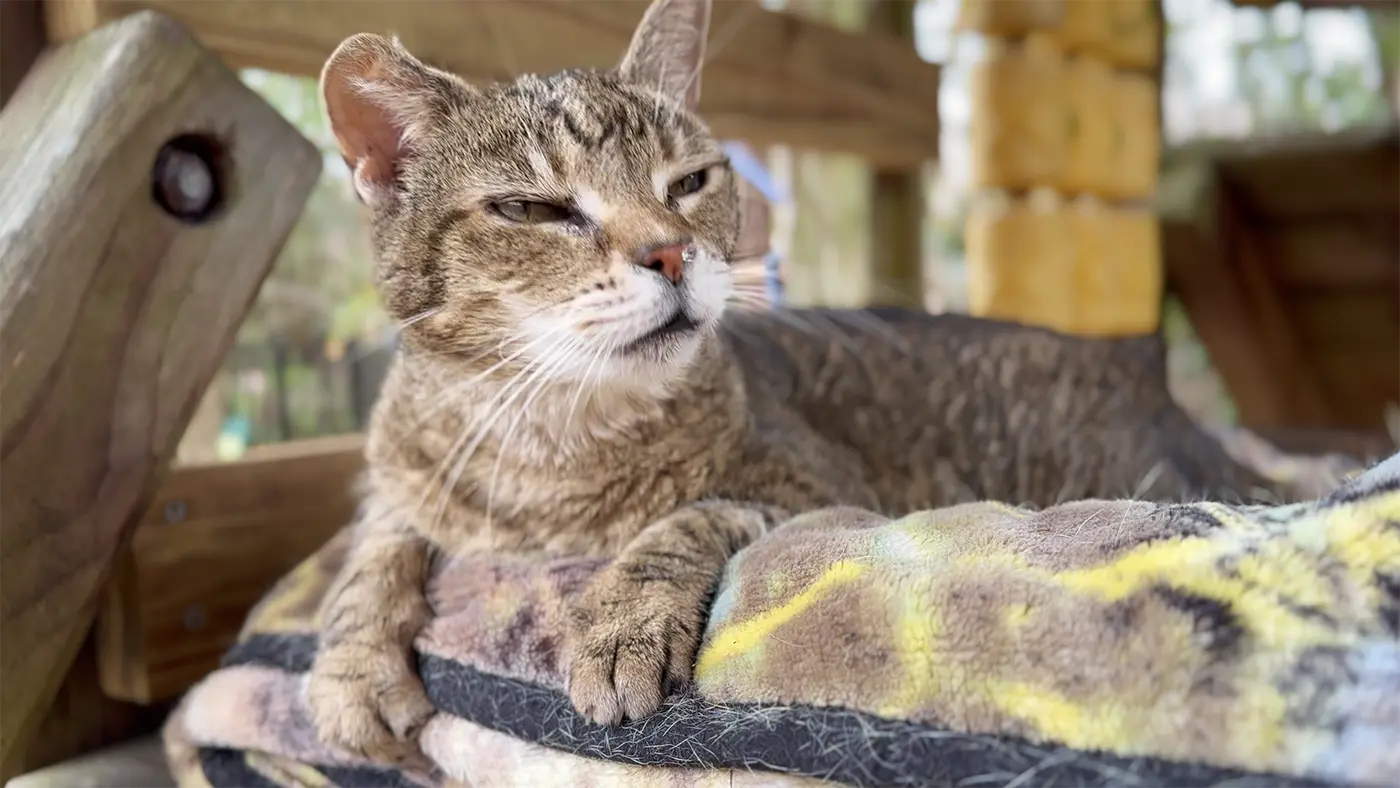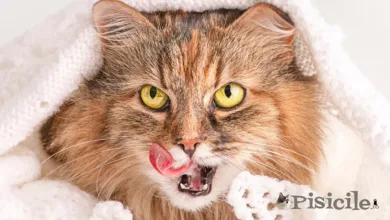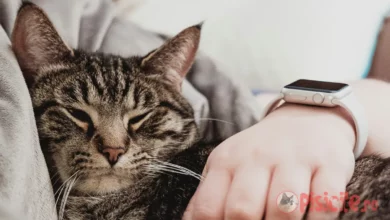
If you notice your cat sneezing, don't be alarmed right away. Cat sneezing is not always a cause for concern. The occasional sneeze can be a normal reaction to dust particles, strong odors or other irritants in the air. However, if sneezing becomes frequent or persistent, it could signal a health problem that deserves your attention. Cats can sneeze for a variety of reasons, from simple irritations to respiratory ailments or even more serious illnesses.
Subject
Why is your cat sneezing?
Sneezing in cats is a natural reflex, triggered when irritants or foreign bodies enter the respiratory tract. It is the cat's body's way of eliminating these intruders to protect the respiratory tract. In general, an occasional sneeze is not a cause for concern, but frequent, persistent sneezing or accompanied by other symptoms may signal a health problem that requires your attention and a visit to the veterinary office for consultation.
Allergens and irritations
Dust, mold, pollen, and even cleaning products or scented sand in the litter box can irritate your cat's nasal lining and be a serious reason for your cat to sneeze. Even though allergies in cats are rarer than in humans, persistent irritations can lead to chronic rhinitis, a condition in which sneezing and inflammation recur quite frequently.
See also: Cat skin allergies. Causes and Treatment.
Fungal infections can be the cause of your cat sneezing
Fungal infections are less common but can occur, especially in cats that live in areas with high humidity or have weakened immune systems. Cryptococcus is an example of a fungus that can infect cats, causing sneezing, runny nose and breathing difficulties.
Bacterial infections
Another reason your cat sneezes may be bacteria such as Mycoplasma, Chlamydia and Bordetella are present in the environment and can cause respiratory infections in cats, especially when their immunity is compromised. In many cases, bacteria act in tandem with viruses, making symptoms worse. Bacterial infections are often manifested by persistent sneezing, coughing, wheezing, and runny nose.
Viral respiratory infections can be the cause of your cat sneezing
Viruses such as feline herpes and calicivirus are among the most common causes of upper respiratory infections in cats. These are manifested by sneezing, nasal and eye discharge, fever, and even loss of appetite. Cats with access to the outdoors or those that frequently interact with other animals are at greater risk of exposure to these viruses.
Foreign bodies in the cat's nose
Cats can accidentally inhale small particles, bits of plant material or dust that get stuck in their nasal passages. Generally, sneezing is sufficient to remove these bodies, but if they become stuck, the cat may need the help of a veterinarian to remove them and unblock the upper airway.

Dental conditions
Dental diseases, especially those affecting the upper molars, can inflame or infect the sinus area, thus triggering frequent sneezing. Signs such as bad breath and excessive drooling could indicate a dental condition that needs treatment.
Tumors and polyps
In older cats, tumors or nasal polyps can occur in the upper respiratory tract, causing persistent sneezing, difficulty breathing, and nasal secretions. These conditions require medical interventions for diagnosis and treatment.
Other symptoms associated with sneezing in cats
Even if you don't need to worry if your cat sneezes a few times, you should watch it so that this manifestation is not frequent or accompanied by other symptoms that may indicate a more serious problem. Signs that can accompany sneezing in cats include:
- Nasal secretions (clear, green or yellow);
- Excessive tearing or conjunctivitis;
- Wheezing or difficulty breathing;
- Fever and lethargy;
- Loss of appetite or weight loss.
When to take your cat to the vet?
If your cat sneezes frequently and the symptoms last more than a few days, you should consult a veterinarian. The vet can do a full evaluation, which includes examination of the respiratory tract and oral cavity, and may recommend blood tests, rhinoscopy or imaging (X-ray or CT) to identify the problem.
It's also important to see your vet if your cat has persistent nasal discharge, sneezing blood, fever or sudden weight loss, symptoms that could indicate serious conditions such as chronic infections, tumors or dental problems.
Possible treatments if your cat sneezes
The treatment of sneezing depends on its cause, so it is recommended to go with her to the veterinarian for thorough investigations and to make the correct diagnosis.
If your cat sneezing because of viral and bacterial infections, they may require antiviral or antibiotic treatments to eliminate pathogens. In case of persistent bacterial infection, appropriate antibiotics are required.
For allergies and irritations it is recommended to reduce exposure to possible irritants and take antihistamines. If they are recommended by the vet, they can be helpful.
In the case of sneezing caused by dental conditions, dental treatment is essential to eliminate infection and reduce discomfort.
Tumors and polyps are conditions that may require surgical intervention or more advanced treatments, depending on the severity of the case. The veterinarian will establish these treatments following a thorough consultation.
In some cases, the vet may also suggest nasal washes to remove secretions or foreign bodies, but such procedures should be performed by a specialist to avoid discomfort and complications.
Conclusion
If your cats occasionally sneeze, it's not a cause for concern. The occasional sneezing in cats is a natural reflex and, most of the time, you should not be alarmed. However, if the sneezing becomes persistent, and your cat has other symptoms, it is highly recommended to consult a veterinarian. A medical evaluation will help to identify the cause and recommend a appropriate treatment for cat's health and comfort tale.



